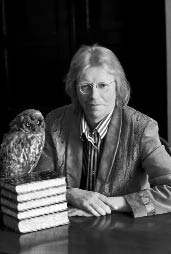Archive for December, 2008
Trial and error?
Issue 4/2008 | Archives online, Essays, On writing and not writing

If you want to write, you need to do it every day, says the author Monika Fagerholm. Trial and error are necessary for her – and so is not being afraid of getting lost in the woods in the process, because only then can amazing things be found
Writers write and writers write every day. I remember seeing this in one of those inspirational guides on writing I enjoy reading – even if they don’t necessarily help you in pursuing your daily writing as much as you would hope. At the worst, they give you a kind of exhausting energy which just leaves you drained. And yes, turning to these kinds of manuals almost always involves an element of desperation; you don’t need advice when everything is going great. More…
The Canada goose
Issue 4/2008 | Archives online, Fiction, Prose
A short story from Tapaus Sidoroff (‘The Sidoroff case’, WSOY, 2008). Introduction by Kristina Carlson
It was no use even trying the old cart track branching from the main road. I turned off the engine and glanced into the back seat. My aunt lifted the brim of her hat, her bright eyes peering at me questioningly.
‘We can’t get any farther by car. The road’s nothing but rough brush. What do you think, Aunt Alli, can you walk the rest of the way?’
My aunt shook her head and didn’t even bother to answer. She opened the car door and clambered out. A swarm of black flies wafted into the air from the brush at the bottom of the ditch.
‘For heaven’s sakes, there’s sure enough of these flies.’
She fanned at the air with her hat, straightened the hem of her dress and trudged across the ditch, without looking back, through the thicket of willows. In spite of her hip trouble, the old woman made her way in such a hurry that I had my work cut out keeping up with her. More…
Damned nihilists
30 December 2008 | Extracts, Non-fiction
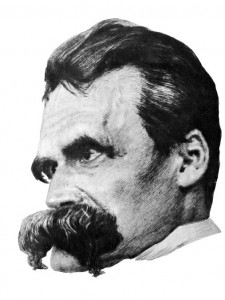
Much misunderstood: father of the superman, Friedrich Nietzsche.
The term nihilism is often bandied about, but often badly misunderstood. In extracts from his new book, Ei voisi vähempää kiinnostaa. Kirjoituksia nihilismistä (‘Couldn’t care less. Writings on nihilism’, Atena, 2008), the social scientist and philosopher Kalle Haatanen discusses the true legacy of Friedrich Nietzsche, nihilism’s high priest
The word nihilist is derived from the Latin: ‘nihil’ means, simply, ‘nothing’. When someone is labelled as nihilist or seen as representing nihilism, this has always been a curse, a mockery or an accusation, whether in philosophy, politics or everyday conversation. More recently, the word has generally been used to refer to people who do not believe in anything – people whose world-view is without principle, without ideals, barren. More…
Olli Jalonen: 14 solmua Greenwichiin [14 knots to Greenwich]
30 December 2008 | Mini reviews
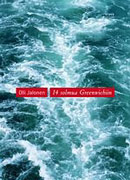 14 solmua Greenwichiin
14 solmua Greenwichiin
[14 knots to Greenwich]
Helsinki: Otava, 2008. 381 p.
ISBN 978-951-1-23014-4
€ 34.40, hardback
The ‘knots’ in the title refer to the 14-part control device in a competitive expedition that the participants have to use to check in at the control points. The Finn Petr Järvi leaves London together with his scientist friend Graham and Graham’s wife Isla on a year-long contest, held in honour of the 350th anniversary of the scientist Edmund Halley. More…
Juha Seppälä: Paholaisen haarukka [The Devil’s fork]
30 December 2008 | Mini reviews
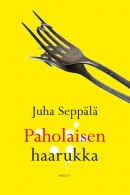 Paholaisen haarukka
Paholaisen haarukka
[The Devil’s fork]
Helsinki: WSOY, 2008. 267 p.
ISBN 978-951-0-34534-4
€ 32, hardback
Seldom does a novel manage to be as topical as Juha Seppälä’s latest – his tenth – which portrays a great economic crisis and the people who are dragged along with it. Seppälä has written lines for his characters where they claim that a novel is only able to depict a reality that existed years ago – but Paholaisen haarukka proves this is not true. More…
I, Vega Maria Eleonora Dreary
Issue 4/2008 | Archives online, Fiction, Prose
Extracts from the novel Chitambo (Schildts, 1933)
I was born in 1893, of course. That, as everyone knows, is the proudest year in the history of Nordic polar research. It was the year in which Fridtjof Nansen began his world-famous voyage to the North Pole aboard the Fram. Mr Dreary viewed this as a personal distinction and a sign that fate had fixed its gaze on him. He at once took it for granted that I was destined for great things, and he showed much skill in fostering the same foolish idea in me…. More…
The fox and the bear
30 December 2008 | Children's books, Fiction
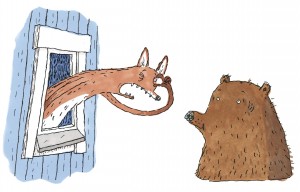
A story from the children’s book Sorsa norsun räätälinä (‘The mallard as tailor to the elephant’, Otava, 2008; illustrated by Christel Rönns. Introduction by Päivi Heikkilä-Halttunen
Back in the days when mallard still had horns, earthworms, claws, and the bear had a long tail, a bear was trudging dejectedly along the road.
Up drove a fox in his van, studded tires crunching, for it was winter and freezing cold. The fox was coming from fishing and his van was bursting with fresh fish. When he saw the bear, the fox stopped, rolled down the window and called, ‘Why hi there, old honey snout! Where’re you coming from?’
‘I was playing cards at Badger’s. I lost all my money and now I’m starving,’ the bear replied.
‘Jump in. No need to suffer in the grip of this cold,’ the fox said. The fox and the bear were good friends. However, the fox envied the bear, because Mr Honeypaws had a much longer, more handsome tail than the fox did. The bear clambered into the fox’s car and saw the enormous catch of fish.
‘Wherever did you get such an incredible amount of fish?’ the bear marvelled.
‘The lake. That’s where you get fish,’ the fox replied. ‘Last week I caught such a big pike that I made snow shovels out of its scales.’ More…
Katri Lipson: Kosmonautti [The cosmonaut]
30 December 2008 | Mini reviews
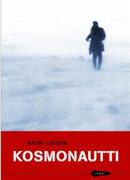 Kosmonautti
Kosmonautti
[The cosmonaut]
Helsinki: Tammi, 2008. 199 p.
ISBN 978-9513-142940
€ 22.50, hardback
Kosmonautti is a reflective first novel by a mature author; Lipson (born 1965), a medical doctor, has succeeded in weeding out the non-essential. In a cold, dark Murmansk during the final decade of the Soviet Union, three people live out their dreams. Seryozha is the good boy who adores space travel and his beautiful music teacher, Svetlana Kovalevna. She is harassed both in the classroom and in the staffroom, and by her snooping neighbours in the communal apartment. More…
The love of the Berber lion
30 December 2008 | Fiction, Prose
A short story from the novel Berberileijonan rakkaus ja muita tarinoita (‘The love of the Berber lion and other stories’, WSOY, 2008). Introduction by Janna Kantola
The lion’s name was Muthul. He was an old Berber lion from the Atlas Mountains. He had a black mane, a black tail with a bushy tip and the scars of many battles on his hide.
He had grown up as a lion cub in the royal palace at Carthage at the time when the Romans, led by Scipio the younger, destroyed the city with fire and sword. The palace was set ablaze, a bloody battle ensued in the gardens, Romans impaled on arrows lay strewn in the rose bushes, Carthaginian blood dyed the water in the fountains. Someone had let all the palace animals, wild and tame alike, out of their cages; they were running around wildly, killing each other in the grip of panic, then disappeared inexplicably. More…
Boys Own, Girls Own? –
Gender, sex and identity
30 December 2008 | Essays, Non-fiction
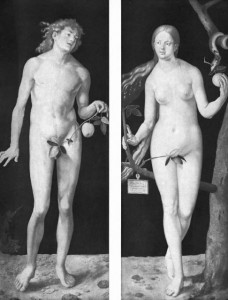
Knowing good and evil: Adam and Eve (Albrecht Dürer, 1507)
In Finnish fiction of the present decade, both in poetry and in prose, there seems to be at least one principle that cuts across all genres: an overt expression of gender, writes the critic Mervi Kantokorpi in her essay
Relationships and family have always been central concerns of literature; questions about gender and individual identity have received a new emphasis in Finnish literature from one season to the next. The gender roles represented in contemporary literature appear to become ever more stereotypical. The question is no longer only of the author consciously setting his or her gender up as the starting point for expression, as has already long been the case with modern literature written by women. More…

